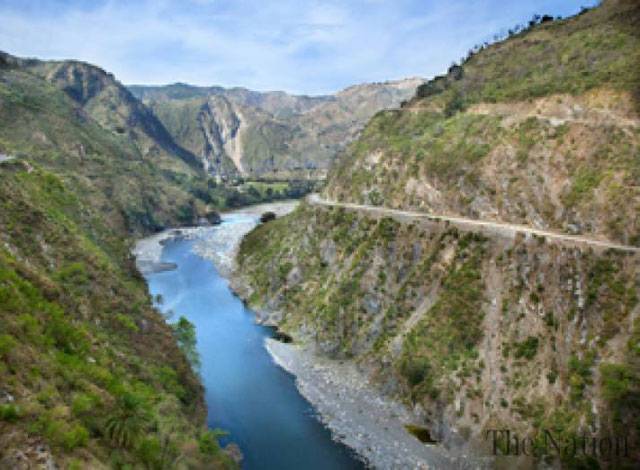ISLAMABAD - The planning commission has questioned throwing more than three quarters of funds allocated for a project - being sponsored by Water and Power ministry - into hiring of consultants.
The commission has also pointed out that the PC-1 of the project of the Capacity Building of Office of Pakistan Commissioner for Indus Waters (PCIW) betrays the very purpose of the project through unreasonable division of funds.
As much as 84 percent (Rs255.531 million) out the total Rs303.421 million allocated for this project is being allocated for the hiring of local and International consultants, according to the PC-I.
The planning commission questioned the sponsor’s claims (made in the project documents) and said that PC-I speaks of understaffing issues, and it seems that major challenge for PCIW Office towards capacity building is lack of sufficient technical personnel. The PC-I document offers only a short-term solution of hiring experts who will leave the organisation after their contract is over, the planning commission said, asking the ministry to chalk a plan to resolve the capacity issues in longer term.
Out of total cost of the project, 84 percent (Rs255.531 million) has been earmarked for local and International consultants whereas only Rs47.890 million have been allocated for incentives to the existing staff, the commission pointed out.
The commission also pointed out the glaring difference in the salary packages, which is Rs5.339 million per month for each international consultant and Rs0.736 million for local consultant.
Moreover, Rs104 million has been allocated for offices utilities, computers, vehicles and other allowances. All these costs are on very higher side and need to be rationalised, the commission commented.
It also noted that the implementation period of the project is 3 years and a disproportionate amount of Rs50 million has been allocated in the first year of PSDP 2016-17.
The planning commission also remarked that Rs2.50 million cost mentioned for each of two 1300CC vehicles to be purchased for the project, is on very high side as compared to market prices.
As per project documents, it is designed to safeguard Pakistan’s water rights as enshrined in the Indus Waters Treaty and better appreciation of water resources’ development in Afghanistan and its impacts on Pakistan, and enhance the capacity to work on the environmental impacts of the big reservoirs constructed on the Eastern Rivers by India.
According to Ministry of Water and Power, the project aims at strengthening of PCIW Office in terms of advance training and hiring services of highly qualified professionals.
The sponsor further claims that the project will build capacity of PCIW Office and generate employment opportunities for technical experts in water resources, hydrology, dam hydraulics, dam engineering, hydropower development, environment and climate change. It will also provide on-job training opportunity to youth and build capacity of the young professionals.
Office of PCIW was established under Article VIII of the Indus Waters Treaty-1960 to monitor and implement the treaty. According to the treaty, the waters of the Eastern Rivers (Sutlej, Ravi and Beas) were allocated to India while those of the three Western Rivers (Indus, Jhelum and Chenab) allocated to Pakistan.
According the Water and Power ministry, in the recent past, India has accelerated the development of its hydropower potential available in the Indus basin on its side and has started construction of new run-of-river hydroelectric plants and storage works on the Western Rivers. In general India’s projects are in violation of the criteria specified in the treaty, it says.
The challenge of implementation of the treaty for safeguarding Pakistan’s legitimate interests is the responsibility of PCIW, which is operating with depleted strength and is in dire need of capacity building.
At present the total sanctioned strength of the office is 61, of which there are 8 posts of officers/engineers and the remaining are supporting staff. This situation is the result of unattractive T&Cs of PCIW for young engineers who do not find the salary packages and other career building opportunities competitive enough and leave the organisation soon after joining it.
The main objective of the project in question is to safeguard Pakistan’s rights on river waters flowing from India and Occupied Jammu and Kashmir, and for this purpose enhancing the capacity of the office of PCIW, the PC-I says.
This will be achieved by recruiting required professional staff for the project that would work under the guidance of international/national experts of high recognition on the tasks specified by the project and for developing guidelines to enhance technical capability of the PCIW Office to effectively deal with the implementation of the Indus Waters Treaty.






